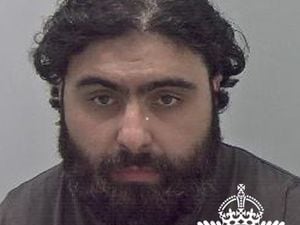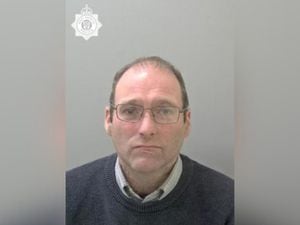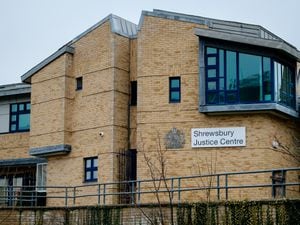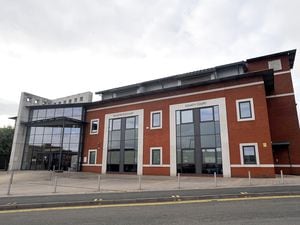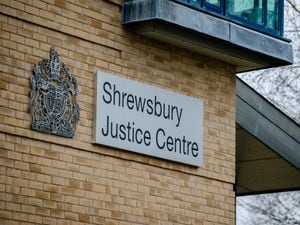Deal that ended 30 years of bloodshed
Having witnessed at first hand the painful road to reconciliation in Northern Ireland, which ended almost 30 years of bloodshed, Owen Paterson can scarcely believe it is now at risk because of a squabble about a green energy scheme.
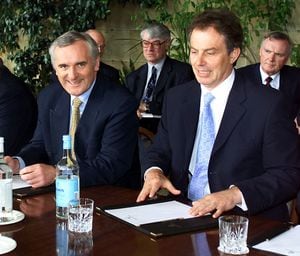
"It's just an excuse," says the North Shropshire MP, who served as Northern Ireland secretary during the first two years of the Coalition government.
"People will be very unsympathetic if all this is at risk because they can't get together and form an executive."
It is 19 years today since Tony Blair and Irish premier Bertie Aherne emerged from Belfast's Stormont Castle, after 17 hours of talks, declaring that finally a settlement on the future of Northern Ireland had been agreed. More than 3,500 people, the majority of them civilians, were killed during the The Troubles which lasted from 1968 to 1998, and more than 47,000 others were injured during the three decades of terror. And while the Good Friday Agreement, as it became known, has all but closed that dark chapter in UK history, the tensions which have recently resurfaced in Ulster show just how far there is still to go.
Today, the devolved power-sharing assembly created by the agreement faces one of the biggest crises since it was formed after a breakdown in relations between the Democratic Unionist Party, which holds the most seats in the Stormont assembly, and Sinn Fein which is the largest republican party. If the deadlock cannot be broken, the likelihood is that the province will once more be ruled directly from London, something which Mr Paterson says must be avoided if at all possible.
The MP, who was Northern Ireland secretary from 2010 to 2012, has put the cat among the pigeons by suggesting the province's political leaders should have their salaries stopped until they can com to an agreement.
While his proposal led to Mr Paterson being branded "a complete tube" by Sinn Fein president Gerry Adams, the Shropshire MP points out that 93 per cent of those who took part in a poll by the Belfast Telegraph supported his stance.
He says that the people of Northern Ireland will take a dim view if the progress of the past two decades grinds to a halt over petty squabbles.
"There will be no sympathy if the parties stand back from having been elected in last month's elections and do not form an executive," he says.
To get an idea of just how far the politics of Northern Ireland have moved on over the years, one only has to cast one's mind back to 1994, just over four years before the agreement was signed. It was in March that year that the IRA planted two bombs in Warrington's packed Bridge Street, killing three-year-old Johnathan Ball who was in town with a babysitter to buy a mothers' day card, and 12-year-old Tim Parry who had gone to buy football shorts.
When news of a peace deal emerged, Tim's father Colin Parry admitted he had been moved to tears while watching the television coverage.
"I think it is tremendous," he said at the time. "I am absolutely delighted that a settlement has been signed."
While Shropshire avoided the devastation that the IRA inflicted on Warrington, Birmingham, London or Belfast, the county did suffer from two IRA bombings. In the early hours of February 20, 1989, bombs were planted at Tern Hill barracks near Market Drayton, although the base was evacuated after the terrorists were spotted by sentries. Three years later, three bombs were planted in Shrewsbury, at Staks in the Charles Darwin Centre, Wades in Shoplatch, and at Shrewsbury Castle, where the Regimental Museum was based. Again, nobody was killed, but the fire which ripped through the museum destroyed priceless military treasures.
The Warrington bombing came shortly after it had emerged that the Government had been holding secret talks with the IRA, despite previous denials. In November 1993, McGuinness claimed that prime minister John Major was fully aware of the negotiations that had been taking place. The news was met with an agnry reaction from unionists. Ulster Unionist Party leader James Molyneaux spoke of his disbelief that the British Government was talking to terrorists.
The Downing Street declaration of that month, where Mr Major and his Republic of Ireland counterpart Albert Reynolds both declared a commitment that the people of Northern Ireland would have the sole right to determine their destiny, was also met with scepticism by both republicans and unionists, but the peace process continued after the IRA declared a ceasefire in 1994.
The Good Friday Agreement, brought about with the intervention of US president Bill Clinton and veteran American senator George Mitchell, followed 17 hours of exhaustive talks between the parties concerned.
Tony Blair, who had succeeded Major as prime minister in 1997, said on the signing of the declaration: "I believe today courage has triumphed.
"I said when I arrived here on Wednesday night that I felt the hand of history upon us. Today I hope that the burden of history can at long last start to be lifted from our shoulders."
However, Mr Blair's optimism was far from unanimous. Norman Tebbit, a former cabinet minister in Margaret Thatcher's government whose wife had been paralysed in a bomb attack, branded the agreement "a considerable victory for the IRA."
The agreement was fiercely opposed by the hardline Democratic Unionist leader Ian Paisley, and Mr Mitchell infamously tried to have him barred from the press conference which followed its signing as he began to heckle from the audience.
So it came as a huge shock in 2007 when he agreed to take up the post of first minister in the Northern Ireland assembly, going into government with Sinn Fein, with ex IRA man Martin McGuinness as his deputy. Yet against all the odds, they not only managed to govern together, but their apparent friendship led to them being branded "the Chuckle Brothers".
Mr Paterson says that while the politicians on all sides deserve some credit for their role in the peace process, he says the real praise should be given to the security services.
"Yes, John Major deserves praise for beginning the talks, and Tony Blair for carrying it on, but the security services are not given enough credit," he says.
"The security services had been so effective it was very hard for the Provisional IRA to carry on with effective acts of violence. They could see that the only way ahead was through party politics."
It seems incredible then, that after things have come so far, that the progress of the past 19 years is now under threat from a row over a botched energy scheme.
The Renewable Heat Incentive scheme was supposed to encourage businesses to use greener energy sources by offering subsidies, but because there was no cap on how much businesses could receive, it simply encouraged them to burn more fuel. An investigation revealed that one farmer was expecting to earn £1 million over 20 years by heating an empty shed. The scheme, which became known as “ash for cash" is expected to cost the taxpayer £1 billion over the next two decades.
First minister Arlene Foster spoke of her "regret" that no controls were in place on the scheme's cost, but defied calls by her Sinn Fein deputy, Mr McGuinness, to resign. Her determination to stay in post led to Mr McGuinness, who died last month, resigning himself, and fresh elections were held. However, these simply confirmed the positions of the DUP and Sinn Fein as the dominant parties in Northern Ireland, with little sign so far of either of them being prepared to settle their differences and form a coalition.
Present Northern Ireland Secretary James Brokenshire has given the opposing parties "a few short weeks" to form a party, otherwise the likelihood is that Northern Ireland will once more be governed directly from Westminster.
Mr Paterson says the matter needs to be settled soon, which is why he called for the party leaders to have their pay stopped until they can come to an agreement.
"There needs to be a government of some sort," he says.
"Some people say direct rule would be a power grab by the UK government, but that is the last thing we want to happen.
"I think the Northern Ireland Secretary is right to give the parties more time."
Despite this setback, Mr Paterson says a return to the dark days when Shropshire, Birmingham, and other towns and cities across the British Isles were seen as fair game by sectarian terror groups.
"We know there's a small number of dissidents who never accepted the Belfast agreement, and will continue to commit acts of violence, but I don't think they have any popular support," he says.
"I don't think there is any public mood for a return to violence."
He says one of his main objectives during his time as Northern Ireland secretary was to revitalise the economy, which relied on the state for 66 per cent of its GDP. And his says this will be the real key to ensuring a harmonious, peaceful future for the province.
"I am optimistic for the future of Northern Ireland," he says. "They are great people, and I think down the road, improving economic prosperity will prevent a return to the political violence.
"If people are so busy living their lives and supporting their families, it would be extraordinary to go back to violence."

